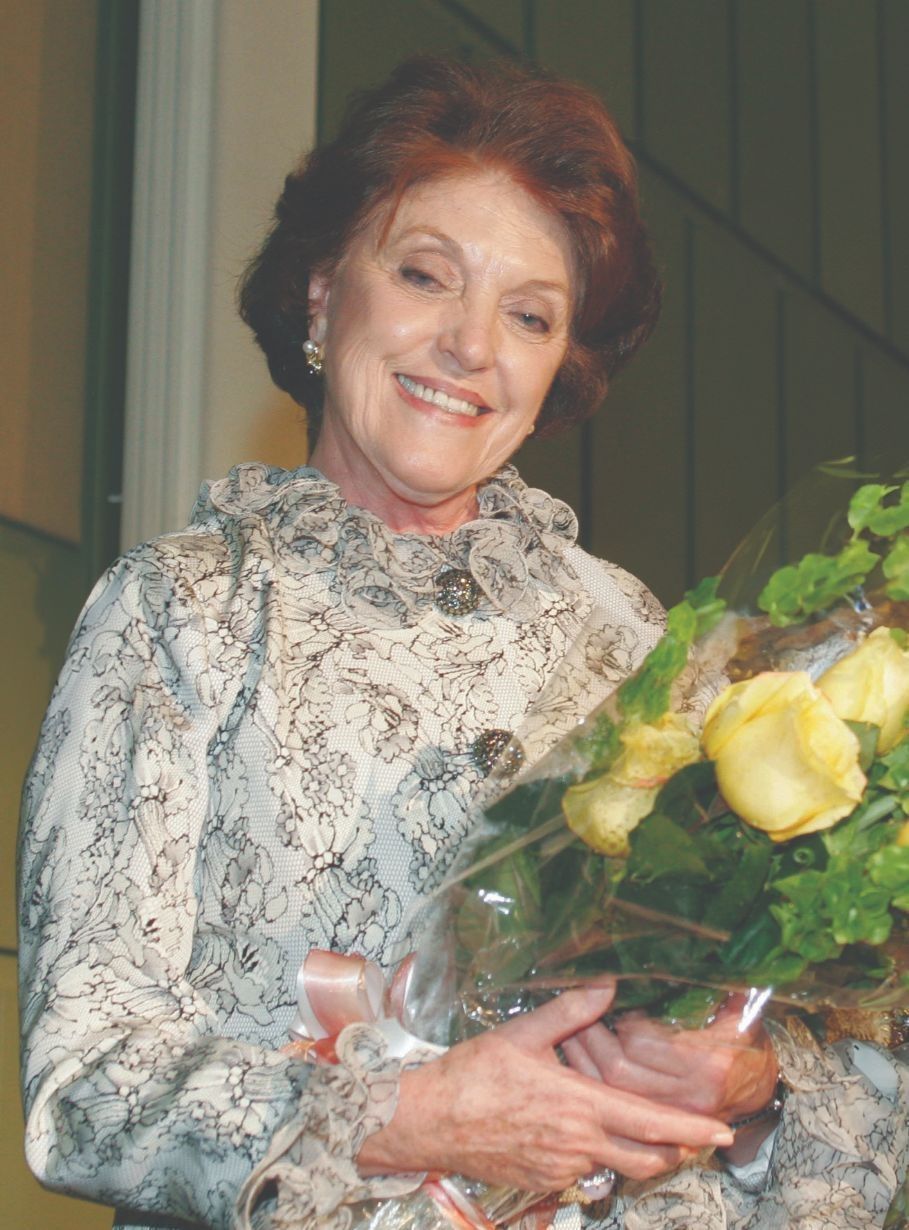FROM A SURPRISING START TO LIFELONG DEDICATION: IMM founder continues to support the institute she loves

Dr. Irma Gigli supports immunology research at the IMM.
When James T. Willerson, MD, walked into the office of Irma Gigli, MD, at the University of California San Diego for a job interview, he commented on a framed photo on her wall, saying how much he admired the scientist in the picture.
“I said, ‘I do, too,’” Gigli remembered. “He had no idea the man in the picture was my husband.”
This meeting ultimately led Willerson, Gigli, and her late husband, Hans J. Müller-Eberhard, MD, PhD, on a path to co-founding the Brown Foundation Institute of Molecular Medicine for the Prevention of Human Diseases (IMM) at UTHealth Houston.
Willerson declined that California job but told Gigli he had ideas for a new institute in Houston and that he wanted her and Müller-Eberhard to join him.
Gigli was one of the early physician-scientists to bridge basic immunology with clinical dermatology. Müller-Eberhard conducted groundbreaking work on biological processes that laid the foundation for much research in modern molecular medicine.
For more than three years, the trio conceptualized and planned an institute that would integrate interconnected fields of study to advance our understanding of disease.
When Gigli and Müller-Eberhard arrived in Houston, they were amazed by the warm welcome and support they received. “People believed in us and showed it,” she said.
A native of Argentina, Gigli had worked at Harvard University, New York University, and the University of Oxford in England, while her husband had been at equally prestigious places, including Scripps Research Institute in La Jolla, Calif., and The Rockefeller University in New York.
Leaving to create a wholly new entity had not been part of their plans, but they were excited about the institute’s potential and committed to making it the best it could be.
“I worked with the architect to design every little piece of that building,” Gigli said of the IMM. “The fountains outside were essential because they provided a tranquil place for researchers to relax and reflect, but I had to work hard to get them since they were expensive.”
In the same way the IMM combines many fields of study, Gigli said she believes the institute combined varied aspects of her life.
“Life has sections,” she said. “You do one thing, and then that ends, and you do something else. The institute brought together all the parts of my life, combining my abilities as a researcher, teacher, administrator, fundraiser—abilities I didn’t know I had.”
At the age of 94, Gigli continues to support the institute, including it in her estate plans. A UTHealth Houston Development Board member, her latest commitments will support immunology research at the IMM and fellowships at The University of Texas MD Anderson UTHealth Houston Graduate School of Biomedical Sciences, where she also taught.
“I firmly believe that education is the way for people to find a better life—financially and emotionally. For me, being able to help people who cannot pay for their own education is the best way to honor those who taught me my values,” Gigli said.
She learned the importance of philanthropy from her father, who quietly gave money to people in need whom he met on his travels throughout Argentina. For years after he died, strangers would send Gigli’s mother money to repay the family of the man who stepped forward when they most needed help.
“I cannot say my life has been all happiness because no life is all happiness. But at the end of my life, I can say I am very happy and extremely grateful for all of the opportunities I have had,” Gigli said. “I think I have always had an angel on my shoulder who helps me make decisions and tells me which way to go. And usually, it’s been in a good direction.”
